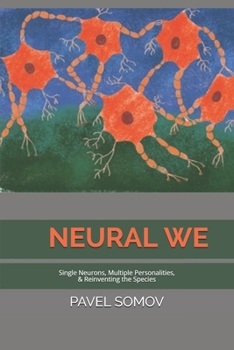Neural We: Single Neurons, Multiple Personalities & Redefining the Species
Wherever you find a neuron, there - as a species - we are. It is time we say a Neural Namaste to our neural selves. It is time we - the neurons - dare to unconditionally anthropomorphize ourselves. We - the so-called "humans" - would get a better sense of who we are if we started thinking of ourselves as a "we" not an "I," as a neural plurality rather than a neural monad. (Not, as a "royal we," but as a "neural we"). The book is about playing with...
Format:Paperback
Language:English
ISBN:1520425112
ISBN13:9781520425115
Release Date:June 2017
Publisher:Independently Published
Length:224 Pages
Weight:0.74 lbs.
Dimensions:0.5" x 6.0" x 9.0"
Related Subjects
PhilosophyCustomer Reviews
0 rating




